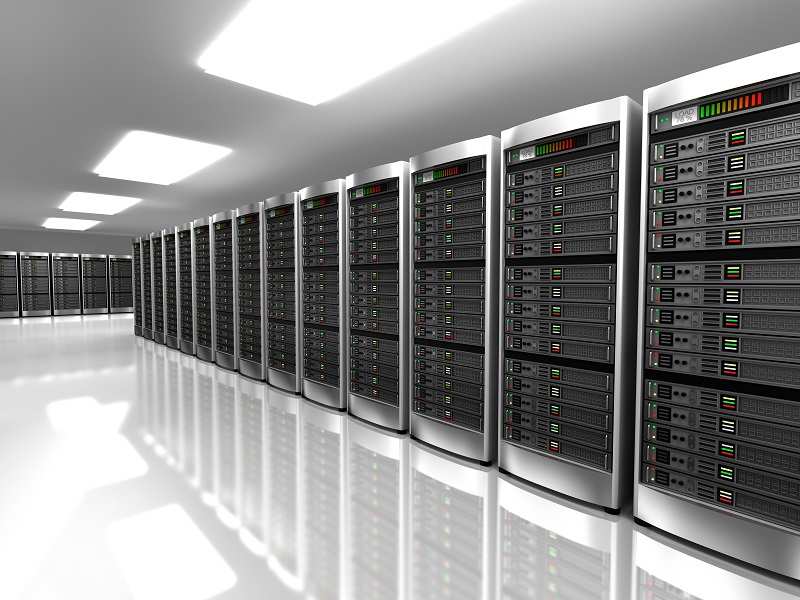Deepak Pahwa, Chairman, Pahwa Group and Managing Director, Bry-Air | TOI Blog | August 06, 2021
The last one and a half years have pushed the demand for the data center air purifier owing to the Covid-19 pandemic. The lockdown has led to an inevitable surge in the use of digital technologies impelling the growth of digitalization and allowing firms to become more and more tech-savvy. The pandemic has illustrated the importance of digital networks and service platforms and has generated the demand for data centres like never before. With the rise of the Internet of Things (IoT) and Industry 4.0, manufacturers too are relying on big data and data analytics to enhance efficiency and productivity. Favourable locations for setting up these mission-critical data centre facilities too have become very important due to the proposed data localisation law, low energy costs and best of communications infrastructure.
Companies across sectors such as IT services, BFSI, hospitals, even the smaller firms have initiated remote working for their employees. Amidst the Covid-19 surge, many companies adopted cloud-based services in the wake to protect their confidential data and ensure that it is stored securely. Due to the Covid-19 lockdown, India has witnessed a growth of over 30% in internet usage consumption. Over the past decade, the traditional data centre has evolved with more integrated technologies and new cloud services.
Covid-19 has been a catalyst for growth in demand for third-party data centres services in India, with several recent announcements concentrated towards hyperscaling of these mission-critical projects across the country.
Data centres are one of the most critical business assets where companies often invest in and deploy the latest advancements. It’s essentially a set of servers that are networked together to help store, retrieve, analyze, process and deliver data and results across the organization. From the most basic email software to app development platforms, to ensuring security for top-secret company data and financial records, some aspect of a data centre is needed to keep these operations going.

However, smooth operations of the data centres are also crucial for a thriving business. The ancillary industry supporting the data centre boon is also fast-growing and so being the cooling and environment control industry as along with usage of AI, robotics now the focus is on the environment that is optimized for machines as data centres are said to consume huge amounts of energy.
Deteriorating quality is one of the most significant threats to the growth of digitalization in the country and cost-effective, energy-efficient solutions is what the data centre operators are looking for.
Main Causes of data centre outages –
data centres are always prone to corrosion because of the harmful environment created by the infiltration of outdoor particulates and gaseous contaminants but, if the facilities are situated near landfill sites, sewerage/drains, high-density traffic, process industries, etc., the corrosion problem is even worse.
It is a form of chemical contamination generated due to the vapour of gases. These gases (like SO2, H2S, NO2, etc.) are highly corrosive in nature and continuously emanate from nearby pollutant sources which can easily seep into your air-conditioned server rooms data centres/ control rooms, switchgear rooms, process control and signalling/switching rooms. These containment gases along with high humidity affect the operational capability, reliability and longevity of process control equipment. They lead to micro-electronic corrosion and equipment malfunction which further causes downtime losses.
Predictive maintenance is the key –
Corrosion Prevention
Protecting the data equipment and servers from any potential contamination threat is a vital step in ensuring the protection of your Datacom equipment and servers.
The solution lies in installing Data Center Air Purifier (DAP), advanced Gas Phase Filtration systems. The biggest USP is its unique usage in big/small server rooms/ data centres and small process control rooms where the indoor environment is affected due to various pollutants sites in proximity. It is uniquely designed to keep the corrosive gases away from damaging the hardware by effectively removing the airborne gaseous through the process of adsorption and chemisorption. This helps in protecting the data centres from the threat of electronic corrosion and abrupt failures.
Humidity Control
Covid-19 has pushed companies for digital transformation. Earlier, digitalization was limited to tier 1 cities but now it is finding recognition and relevance among tier 2 and tier 3 cities as well. In the Covid era, more people are using internet services for medical treatment, studying, shopping and entertainment. This wind of change needs robust IT infrastructure and investments in data centres. They should run continuously, 24×7 without fail.
Hence, it has become crucial for companies to invest in cost-effective technologies. We need energy-efficient equipment to maintain the data centres. Dehumidifiers are quite helpful in solving the problem, they can be set at the optimum levels to control the amount of moisture in the air. Even aligning server racks uniformly is part of standard procedure to ensure that data centres operate at full capacity without overheating.
There are many reasons for using a compact dehumidifier such as it removes excess moisture from the air, prevents condensation on the equipment and provides a comfortable working environment for staff. In short, they are designed to shield the servers.




